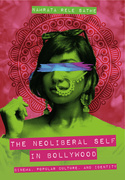Fan Phenomena: Buffy the Vampire Slayer (Book)
Few could have predicted the enduring affection inspired by Joss Whedon’s television series, Buffy the Vampire Slayer. With its origins in a script Whedon wrote for a 1992 feature film of the same name, the series far outpaced its source material, gathering a devoted audience that remains loyal to the show more than a decade after it left the airwaves. Heralded for its use of smart, funny and emotionally resonant narrative; subversive and feminist characterizations; and unique approaches to television as an art form, the show quickly developed its own unique fan community, who built on existing narratives through fan fiction, media manipulation and performance.
Fan Phenomena: Buffy the Vampire Slayer explores how this continued devotion is internalized, celebrated and critiqued. Featuring interviews with culture makers, academics and creators of participatory fandom, the essays here are a window into the more personal and communal aspects of the fan experience. Essays from critical thinkers and scholars address how Buffy inspires the creation of, among other enduring artifacts of fandom, fan fiction, crafting, performance, cosplay and sing-alongs.
As an accessible yet vigorous examination of a beloved character and her world, Fan Phenomena: Buffy the Vampire Slayer provokes a larger conversation about the relationship between cult properties and fandom, and how their interplay permeates the cultural consciousness, in effect contributing to culture through new narrative, academia, language and political activism.Few could have predicted the enduring affection inspired by Joss Whedon’s television series, Buffy the Vampire Slayer. With its origins in a script Whedon wrote for a 1992 feature film of the same name, the series far outpaced its source material, gathering a devoted audience that remains loyal to the show more than a decade after it left the airwaves. Heralded for its use of smart, funny and emotionally resonant narrative; subversive and feminist characterizations; and unique approaches to television as an art form, the show quickly developed its own unique fan community, who built on existing narratives through fan fiction, media manipulation and performance.
Fan Phenomena: Buffy the Vampire Slayer explores how this continued devotion is internalized, celebrated and critiqued. Featuring interviews with culture makers, academics and creators of participatory fandom, the essays here are a window into the more personal and communal aspects of the fan experience. Essays from critical thinkers and scholars address how Buffy inspires the creation of, among other enduring artifacts of fandom, fan fiction, crafting, performance, cosplay and sing-alongs.
As an accessible yet vigorous examination of a beloved character and her world, Fan Phenomena: Buffy the Vampire Slayer provokes a larger conversation about the relationship between cult properties and fandom, and how their interplay permeates the cultural consciousness, in effect contributing to culture through new narrative, academia, language and political activism.Few could have predicted the enduring affection inspired by Joss Whedon’s television series, Buffy the Vampire Slayer. With its origins in a script Whedon wrote for a 1992 feature film of the same name, the series far outpaced its source material, gathering a devoted audience that remains loyal to the show more than a decade after it left the airwaves. Heralded for its use of smart, funny and emotionally resonant narrative; subversive and feminist characterizations; and unique approaches to television as an art form, the show quickly developed its own unique fan community, who built on existing narratives through fan fiction, media manipulation and performance.
Fan Phenomena: Buffy the Vampire Slayer explores how this continued devotion is internalized, celebrated and critiqued. Featuring interviews with culture makers, academics and creators of participatory fandom, the essays here are a window into the more personal and communal aspects of the fan experience. Essays from critical thinkers and scholars address how Buffy inspires the creation of, among other enduring artifacts of fandom, fan fiction, crafting, performance, cosplay and sing-alongs.
As an accessible yet vigorous examination of a beloved character and her world, Fan Phenomena: Buffy the Vampire Slayer provokes a larger conversation about the relationship between cult properties and fandom, and how their interplay permeates the cultural consciousness, in effect contributing to culture through new narrative, academia, language and political activism.Few could have predicted the enduring affection inspired by Joss Whedon’s television series, Buffy the Vampire Slayer. With its origins in a script Whedon wrote for a 1992 feature film of the same name, the series far outpaced its source material, gathering a devoted audience that remains loyal to the show more than a decade after it left the airwaves. Heralded for its use of smart, funny and emotionally resonant narrative; subversive and feminist characterizations; and unique approaches to television as an art form, the show quickly developed its own unique fan community, who built on existing narratives through fan fiction, media manipulation and performance.
Fan Phenomena: Buffy the Vampire Slayer explores how this continued devotion is internalized, celebrated and critiqued. Featuring interviews with culture makers, academics and creators of participatory fandom, the essays here are a window into the more personal and communal aspects of the fan experience. Essays from critical thinkers and scholars address how Buffy inspires the creation of, among other enduring artifacts of fandom, fan fiction, crafting, performance, cosplay and sing-alongs.
As an accessible yet vigorous examination of a beloved character and her world, Fan Phenomena: Buffy the Vampire Slayer provokes a larger conversation about the relationship between cult properties and fandom, and how their interplay permeates the cultural consciousness, in effect contributing to culture through new narrative, academia, language and political activism.Few could have predicted the enduring affection inspired by Joss Whedon’s television series, Buffy the Vampire Slayer. With its origins in a script Whedon wrote for a 1992 feature film of the same name, the series far outpaced its source material, gathering a devoted audience that remains loyal to the show more than a decade after it left the airwaves. Heralded for its use of smart, funny and emotionally resonant narrative; subversive and feminist characterizations; and unique approaches to television as an art form, the show quickly developed its own unique fan community, who built on existing narratives through fan fiction, media manipulation and performance.
Fan Phenomena: Buffy the Vampire Slayer explores how this continued devotion is internalized, celebrated and critiqued. Featuring interviews with culture makers, academics and creators of participatory fandom, the essays here are a window into the more personal and communal aspects of the fan experience. Essays from critical thinkers and scholars address how Buffy inspires the creation of, among other enduring artifacts of fandom, fan fiction, crafting, performance, cosplay and sing-alongs.
As an accessible yet vigorous examination of a beloved character and her world, Fan Phenomena: Buffy the Vampire Slayer provokes a larger conversation about the relationship between cult properties and fandom, and how their interplay permeates the cultural consciousness, in effect contributing to culture through new narrative, academia, language and political activism.
Edition
Fan Phenomena: Buffy the Vampire Slayer explores how this continued devotion is internalized, celebrated and critiqued. Featuring interviews with culture makers, academics and creators of participatory fandom, the essays here are a window into the more personal and communal aspects of the fan experience. Essays from critical thinkers and scholars address how Buffy inspires the creation of, among other enduring artifacts of fandom, fan fiction, crafting, performance, cosplay and sing-alongs.
As an accessible yet vigorous examination of a beloved character and her world, Fan Phenomena: Buffy the Vampire Slayer provokes a larger conversation about the relationship between cult properties and fandom, and how their interplay permeates the cultural consciousness, in effect contributing to culture through new narrative, academia, language and political activism.
Jennifer K. Stuller is a writer, author, scholar, media critic, and feminist pop culture historian.
Introduction – Jennifer K. Stuller
The Best, Worst, Known, and Not-So-Known, Pop Culture Influences on the Buffyverse – Jennifer K. Stuller
'Let's Watch a Girl': Whedon, Buffy, and Fans in Action – Tanya R. Cochran
Ficcers and Shippers: A Love Story – Mary Kirby-Diaz
Interview – Nicki Stafford: Organising The Great Buffy Rewatch of 2011
Buffyspeak: The Internal and External Impact of Slayer Slang – Liz Medendorp
'Welcome to the Hellmouth': Harnessing the Power of Fandom in the Classroom – Amy Peloff and David Boarder Giles
Interview – Rhonda Wilcox: The 'Mother' of Buffy Studies
Buffy, Dark Romance and Female Horror Fans – Lorna Jowett
Seeing Green: Willow and Tara Forever – Kristen Julia Anderson
The Art of Buffy Crafts – Nikki Faith Fuller
Interview – Clinton McClung: Founder of the touring 'Once More With Feeling' interactive event
Buffyverse Fandom as Religion – Anthony R. Mills
Interview – Scott Allie: Writer, and Senior Managing Editor at Dark Horse Comics
Unlimited Potentials – David Bushman and Arthur Smith
'This book is for all the Buffy fans new and old who are asking themselves "where do we go from here"? Fan Phenomena: Buffy the Vampire Slayer is a celebration, a geek freak out, a fun pontification on what it means to continue to be inspired by this cheeky, kick-ass pop culture icon'
'This is a brilliant and compulsively readable exploration of the fandom dynamic in the context of Buffy the Vampire Slayer. Fan and scholar Stuller has amassed a fascinating array of essays and interviews by the best and brightest (and wittiest!) who love and study the Slayer'
'Jennifer Stuller’s new compilation has once more revised and expanded our sense of what a Buffy volume can be, this time offering us not only fresh insights into the world of the slayer and her life in the minds of fans, but a new graphically enthralling book design as well – a perfect inducement for what Joss Whedon once called “the revolutionary page-turning process”'




















